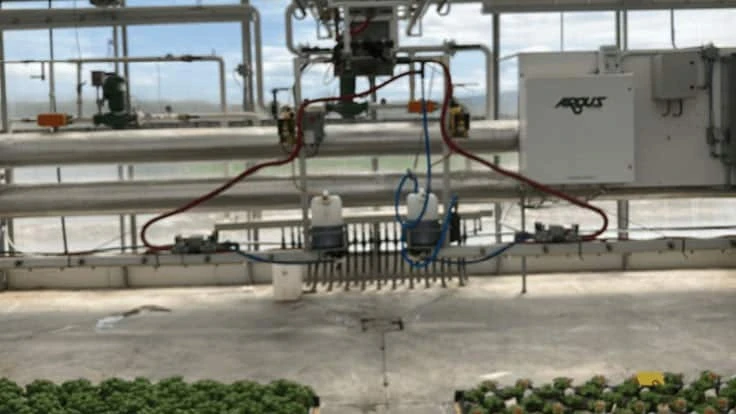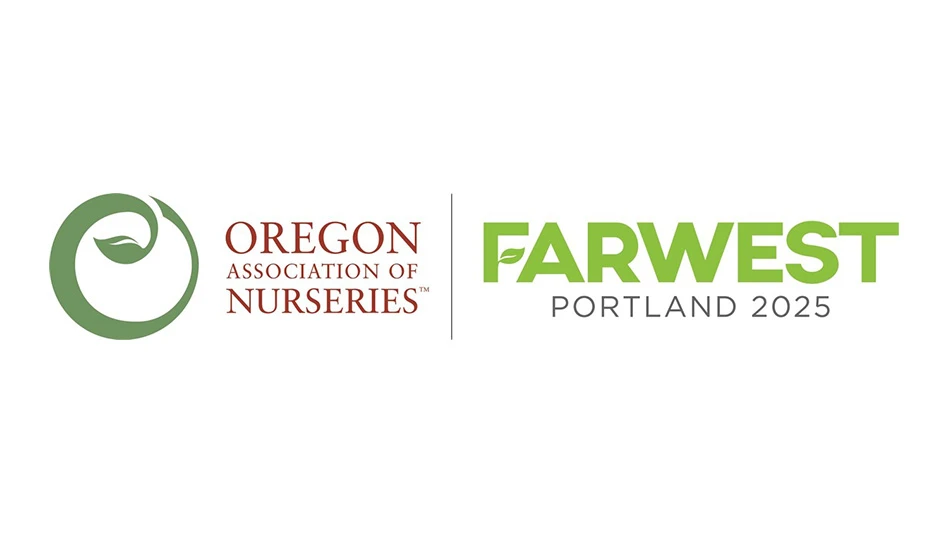
When a commercial environmental control system is doing its job, growers and plant-lovers alike benefit.
“We are extremely diversified and we’ve made a niche taking care of and looking after the smaller customer,” says Philip Keeler, head grower at Jolly Farmer. “The broad range of control that Argus gives us enables us to have an extremely large amount of diversified growing conditions for different plant species. This enables us to do a good job taking care of our customer base.”
Diverse, indeed. The operation in Northampton, New Brunswick, propagates some 3,000 different varieties of plugs and liners (as well as finished offerings) in a 13-acre greenhouse, with a perpetual production cycle that hits the spring, fall and holiday plant-buying seasons.Keeler says the group’s experience with Argus started in 1997 with the Argus Classic system. They’ve recently upgraded to the Argus Titan controller, which Keeler says is “a very powerful system with a lot of the additional features that we like.”
“The biggest thing [the Titan] has helped us with is developing an integration between the environmental control system and our traveling irrigation booms,” he says. “Today we’re using the Argus system to tell the booms when to go, so the system itself is making decisions based on the environmental conditions — when to change or adjust our misting cycles on our propagated cuttings.”


Prior to achieving this level of integrated control, Keeler says that growers would often have to make a “mad dash” back to the greenhouse during inclement weather to adjust the system manually.
Of course, the Titan system would not be able to adjust to environmental conditions autonomously without a network of connected sensors within the greenhouses. Keeler notes that recently upgraded temperature and humidity sensors “seem more durable” than the previous models.
“One other aspect that has really helped us save on our maintenance and labor costs is the wireless bridge capability,” he says. “We have some off-site wells located about a half mile away that we need to turn on and off throughout the year, and we’re a pretty lightning strike-prone region. In the past, we’ve had some trouble with lightning striking those wires and shorting the system. With the wireless ethernet bridge as they call it, that is no longer an issue.”
A commitment to personalized customer service is yet another reason Jolly Farmer appreciates the partnership it has worked out with the Argus Controls.
“They’ve done very well over the years on customer service, even assigning us one of their technicians to look after us, which has been a huge help,” Keeler says. “And we’re of course very grateful for the work they’ve done to merge the Classic hardware with the newer Titan system. We didn’t have to just scrap the whole thing and go and replace everything [when we upgraded].”

Explore the September 2020 Issue
Check out more from this issue and find your next story to read.
Latest from Greenhouse Management
- CEA Alliance celebrates bipartisan introduction of Supporting Innovation in Agriculture Act
- Dümmen Orange North America celebrating 25th anniversary in 2025
- Illinois Landscape Contractors Association changes name to Landscape Illinois
- 2025 Proven Winners Horticulture Scholarship applications now open
- ICL’s Gemini Granular herbicide now registered for use in California
- Eurazeo Planetary Boundaries Fund acquires Bioline AgroSciences
- Spring Meadow Nursery's Freedom Shelley finds joy in plants
- Leading Women of Horticulture: Dana Massey, Plantworks Nursery






